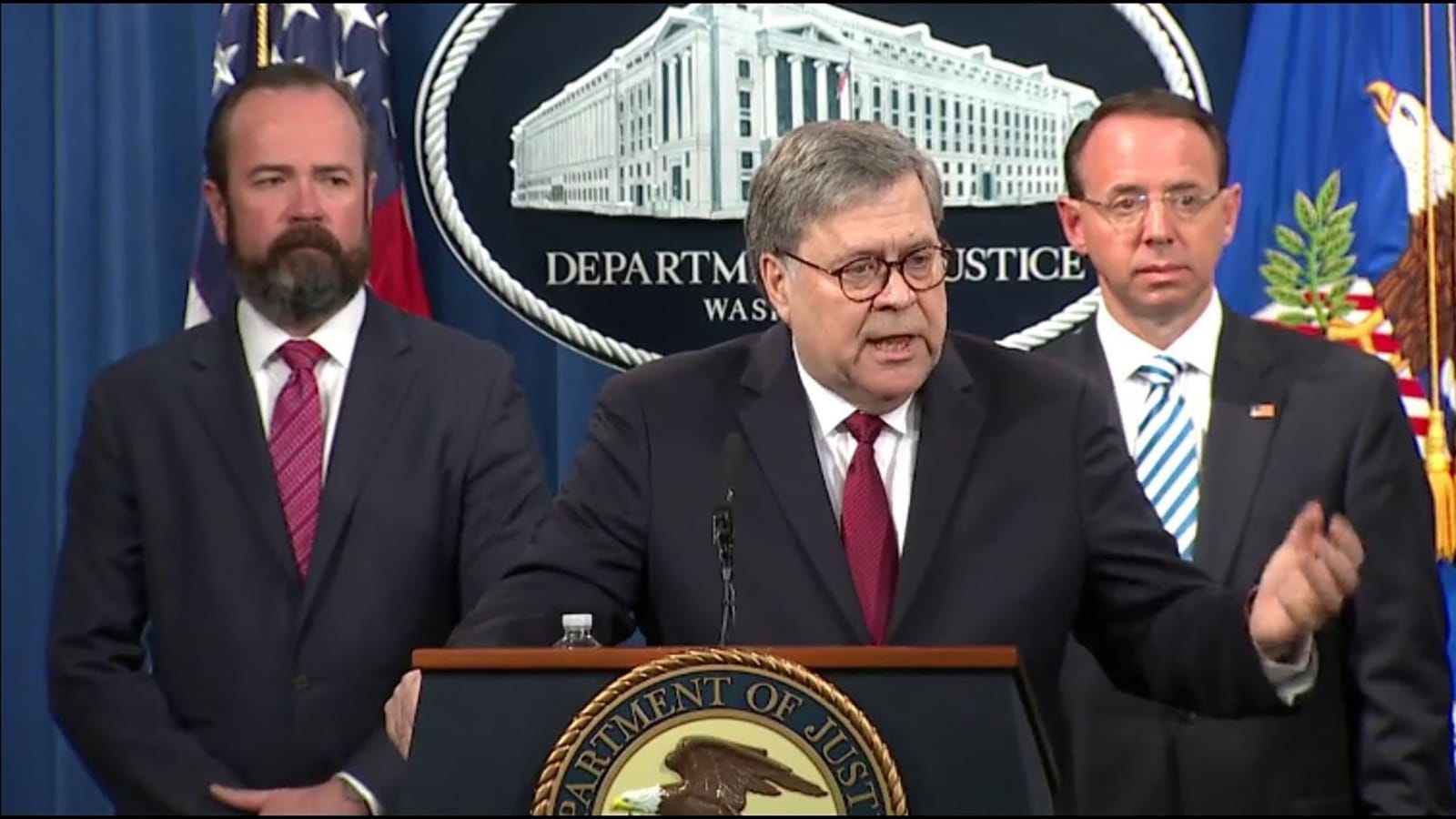The two-pronged conspiracy theory that has dominated US political discourse for almost three years – that (1) Trump, his family and his campaign conspired or coordinated with Russia to interfere in the 2016 election, and (2) Trump is beholden to Russian President Vladimir Putin — was not merely rejected today by the final report of Special Counsel Robert Mueller. It was obliterated: in an undeniable and definitive manner.
The key fact is this: Mueller – contrary to weeks of false media claims – did not merely issue a narrow, cramped, legalistic finding that there was insufficient evidence to indict Trump associates for conspiring with Russia and then proving their guilt beyond a reasonable doubt. That would have been devastating enough to those who spent the last two years or more misleading people to believe that conspiracy convictions of Trump’s closest aides and family members were inevitable. But his mandate was much broader than that: to state what did or did not happen.
That’s precisely what he did: Mueller, in addition to concluding that evidence was insufficient to charge any American with crimes relating to Russian election interference, also stated emphatically in numerous instances that there was no evidence – not merely that there was insufficient evidence to obtain a criminal conviction – that key prongs of this three-year-old conspiracy theory actually happened. As Mueller himself put it: “in some instances, the report points out the absence of evidence or conflicts in the evidence about a particular fact or event.”
With regard to Facebook ads and Twitter posts from the Russia-based Internet Research Agency, for example, Mueller could not have been more blunt: “The investigation did not identify evidence that any US persons knowingly or intentionally coordinated with the IRA’s interference operation” (emphasis added). Note that this exoneration includes not only Trump campaign officials but all Americans:
To get a further sense for how definitive the Report’s rejection is of the key elements of the alleged conspiracy theory, consider Mueller’s discussion of efforts by George Papadopoulos, Joseph Misfud and and “two Russian nationals” whereby they tried “to arrange a meeting between the Campaign and Russian officials” to talk about how the two sides could work together to disseminate information about Hillary Clinton. As Mueller puts it: “No meeting took place.”
Several of the media’s most breathless and hyped “bombshells” were dismissed completely by Mueller. Regarding various Trump officials’ 2016 meetings with Russian Ambassador Sergey Kislyak, Mueller said they were “brief, public and nonsubstantive.” Concerning the much-hyped change to GOP platform regarding Ukraine, Mueller wrote that the “evidence does not establish that one campaign official’s efforts to dilute a portion of the Republican platform was undertaken at the behest of candidate Trump or Russia,” and further noted that such a change was consistent with Trump’s publicly stated foreign policy view (one shared by Obama) to avoid provoking gratuitous conflict with the Kremlin over arming Ukrainians.. Mueller also characterized a widely hyped “meeting” between then-Senator Jeff Sessions and Kislyak as one that did not “include any more than a passing mention of the presidential campaign.”
Regarding one of the most-cited pieces of evidence by Trump/Russia conspiracists – that Russia tried once Trump was nominated to shape his foreign policy posture toward Russia – Mueller concluded that there is simply no evidence to support it:
In other crucial areas, Mueller did not go so far as to say that his investigation “did not identify evidence” but nonetheless concluded that his 22-month investigation “did not establish” that the key claims of the conspiracy theory were true. Regarding alleged involvement by Trump officials or family members in the Russian hacks, for instance, Mueller explained: “the investigation did not establish that members of the Trump campaign conspired or coordinated with the Russian government in its election interference activities.”
As for the overarching maximalist conspiracy – that Trump and/or members of his family and campaign were controlled by or working for the Russian government – Mueller concluded that this belief simply lacked the evidence necessary to prosecute anyone for it:
And Mueller’s examination of all the so-called “links” between Trump campaign officials and Russia that the US media has spent almost three years depicting as “bombshell” evidence of criminality met the same fate: the evidence could not, and did not, establish that any such links constituted “coordination” or “conspiracy” between Trump and Russia:
Perhaps most amazingly, even low-level, ancillary, hangers-on to the Trump campaign that even many Russiagate skeptics thought might end up being charged as Russian agents were not.
Fair Use Excerpt. Read the rest at The Intercept.







